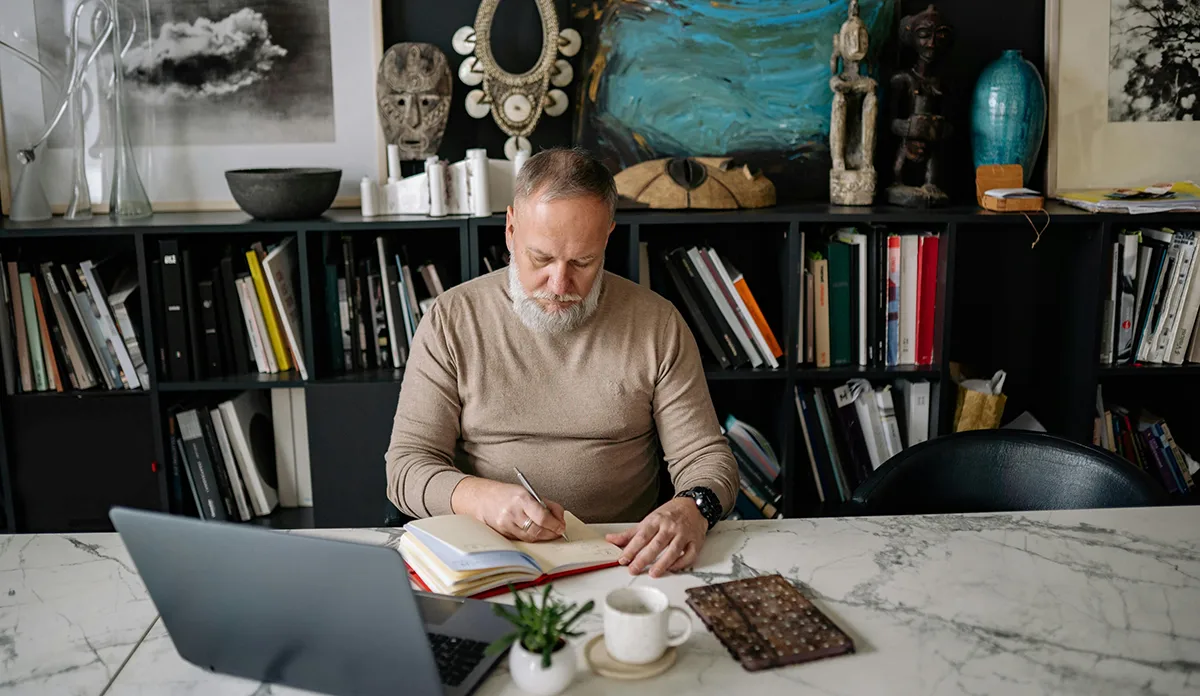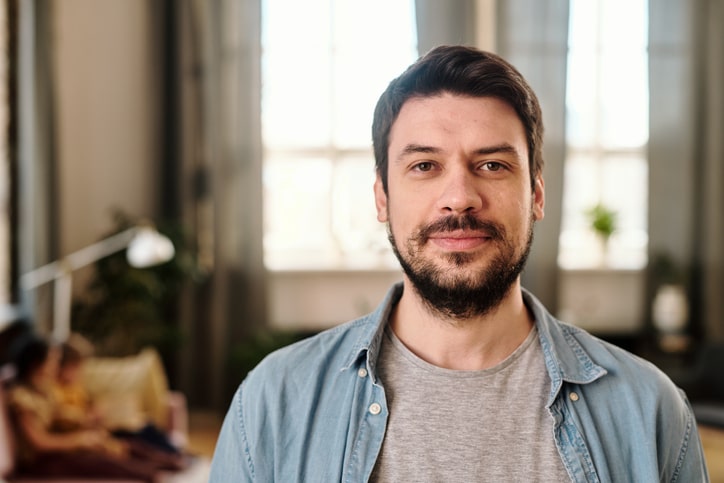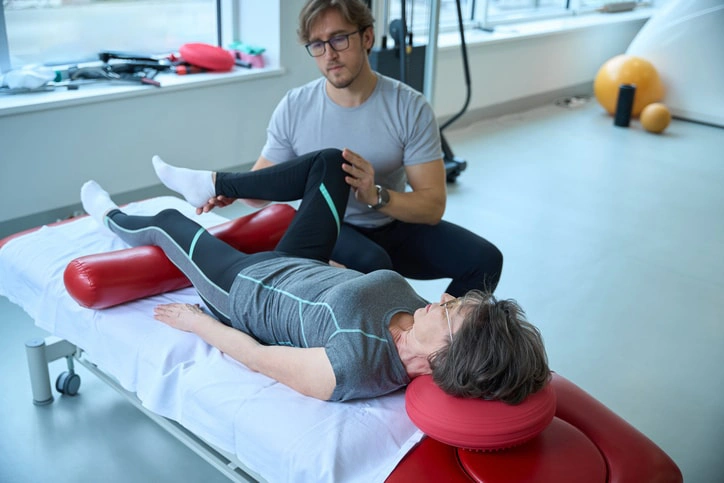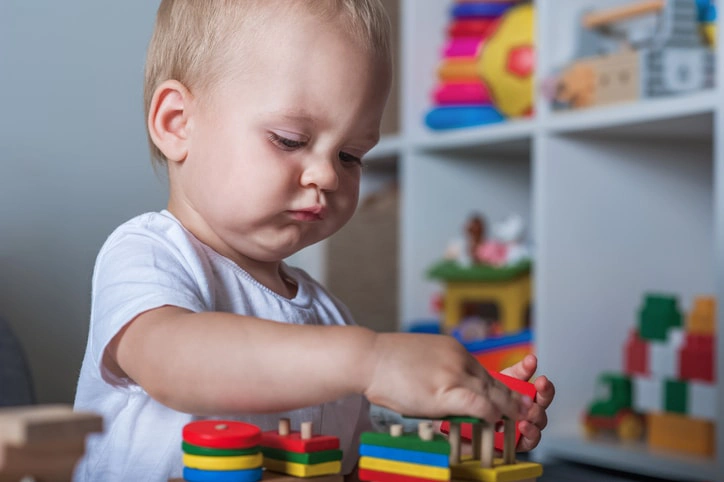Table of Contents
What is a Psychosocial Disability?
Psychosocial disability is a term used, mainly by organisations like the National Disability Insurance Agency (NDIS), to describe a disability that may arise from mental health conditions or illnesses. It doesn’t relate specifically to one diagnosis or label, it is a broad term that refers to the significant impact a person experiences in their daily life.
It’s important to note that not everyone with a mental health condition will have a psychosocial disability, as everyone’s experience is different. Generally, people are considered to have a psychosocial disability if their mental health condition is enduring and results in substantial difficulties in taking part in everyday activities.
In 2018, 1.1 million Australians had a psychosocial disability, according to the 2018 Survey of Disability, Ageing and Carers.
In this article, we explain the difference between a mental health issue or illness and a psychosocial disability and look at the supports that can help people with a psychosocial disability live their life well, in a meaningful and contributing way.

What is an example of psychosocial disability?
Although psychosocial disability isn’t based on mental conditions or diagnosis, some mental illnesses that are often associated with psychosocial disability are:
- Schizophrenia and other schizoid disorders
- Mood disorders such as chronic depression and bipolar
- Anxiety disorders such as obsessive compulsive disorder, post-traumatic stress disorder, and social phobias.
When these mental health conditions significantly affect a person’s daily living on an ongoing basis, we might start to consider psychosocial disability.
How is a psychosocial disability different from a mental health condition?
- is ongoing,
- is significant, and
- makes it difficult to do everyday tasks such as going shopping, looking after yourself, or working.
The condition can be ongoing or episodic but it is likely to be with you for life.
A psychosocial disability is not about a diagnosis, it is about the effect it has on a person’s ability to live life in the way they want to. If the mental illness causes a functional impact and creates barriers to equality with others, this is when it might be considered a person has a psychosocial disability.

What impact can a psychosocial disability cause?
In the same way as other disabilities can affect the way a person uses their body or brain, a psychosocial disability can impact a person’s function, which affects their ability to interact with others, their environment, perform tasks and learn new skills. It may impact the way we understand, think, and feel about things.
Psychosocial disabilities present differently in each person and because they are often invisible, they can be difficult for others to notice or understand. The stigma and discrimination associated with mental illnesses and psychosocial disabilities can be as debilitating as the condition itself.
A person can experience psychosocial disability without a clinical diagnosis of a mental illness. The NDIS states you do not need to disclose your diagnosis to be eligible, however, we know this is the preferred option when assessing NDIS access.
The NDIS will not assess based on the condition or label for the group of symptoms you experience, they will assess based on the impact of your mental health condition.
People with a psychosocial disability can find it hard to think clearly, remember things, be organised, make and stick to plans, finish tasks they start or maintain social relationships. A psychosocial disability can prevent someone from:
- Getting a job (economic participation)
- Accessing training and education
- Joining in social activities (social inclusion)
- Getting or keeping a home
- Achieving their goals.
A psychosocial disability may restrict a person’s ability to live their life well, in they way they want to.

Support and services for people with psychosocial disability
If you have a psychosocial disability there is plenty of support available to help manage both the symptoms of your condition and your day-to-day life. With the right support in place, there is no reason why having a psychosocial disability should stop you from achieving what you want in life.
As with other disabilities, there are clinical interventions and treatments that people with a psychosocial disability can access through the healthcare system to work to help with their symptoms. This is through the health care system.
There is also a range of other non-clinical services and supports that can help someone with a psychosocial disability to live a positive life that is not defined by their diagnosis. These disability supports can be funded through the NDIS, if you have an NDIS plan.
Support and treatment requirements vary a lot between individuals, so there is no ‘one-size-fits-all’ approach to choosing support services.
Clinical treatment through the healthcare system
Many people find clinical or health support helps them manage their condition. These might be provided by a GP, a medical specialist (like a psychiatrist), or clinical support from a hospital or another facility as part of the mental health system. It can include acute care, rehabilitation, therapy, and medication to address symptoms.
Clinical treatment and services aren’t covered by the NDIS, but they might be covered (or partially-covered) under Medicare.
Some allied health services, for example, psychology, can be covered under either the healthcare system (Medicare) OR the NDIS. This depends on whether the service is related to a reduction in clinical symptoms (which means it comes under the healthcare system) or related to maintaining and improving function (which means it’s covered by the NDIS). It can be confusing but your treating professionals can help you work out which is the case for you.
Disability support through the National Disability Insurance Scheme (NDIS)
The National Disability Insurance Scheme (NDIS) provides funding for non-clinical disability support services for people with psychosocial disability: these services don’t treat the illness or condition itself but provide specialised support to help people overcome the barriers that prevent them from living their life the way they want to.
The support and services provided through the NDIS will assist people living with psychosocial disability to live more independently and participate in society. The NDIS recognises that psychosocial disabilities can be episodic, or change over time, so NDIS plans for psychosocial disabilities are designed to be flexible.
If you have a psychosocial disability, or if you think you might, you could be eligible for an NDIS plan, which provides government funding to people with a disability to help them pay for the services and supports they need because of their disability.
These supports assist a person to:
- regain their independence,
- learn new skills,
- build confidence,
- organise their priorities and
- understand their rights
- and much more.
If your condition is permanent and affects your ability to do everyday things then the NDIS may help you to get the support you need. Read more information about NDIS eligibility for psychosocial disabilities and mental health conditions.

Examples of non-clinical support
recovery coaching
Non-clinical supports include recovery coaching, where a qualified professional who understands psychosocial disability partners with you to organise your supports and work towards your goals. A recovery coach will complement other forms of support, acting as your go-to person for bringing together all the supports you need to assist you to live a good life, in the way you want.
In this context, recovery doesn’t mean ‘cured’, rather it means achieving wellbeing – emotionally, physically and mentally.
Counselling
NDIS counselling is a therapeutic service delivered by accredited professionals, which can help you to look after your mental health and improve personal skills.
Counselling provides a safe space for you to:
- Discuss things you feel are holding you back or causing emotional distress
- explore options, develop strategies to overcome barriers and sort through conflict
- process your experiences and create new perspectives.
Counsellors are trained to listen, help you sort out your feelings, and develop strategies to help you overcome problems and work towards a happy, confident, and functioning you.
Allied health
Some people with a mental health illness or psychosocial disability also see allied health practitioners such as:
- psychologist
- occupational therapist
- exercise physiologist.
These types of services are available in the healthcare system and sometimes for NDIS participants; generally the rule here is the healthcare system funds services that are related to a reduction in clinical symptoms and the NDIS will fund services that relate to maintaining and improving function.
Support with everyday living
The NDIS can also provide funding for support services to help with things that are made difficult by a psychosocial disability, like everyday tasks or social inclusion. For example:
- Household tasks like cleaning, gardening, shopping
- Support workers who can help with tasks or help you get out in the community
- Transport
- Social activities.
Advocacy and informal supports
Disability Advocacy Organisations
Disability advocacy organisations are usually not-for-profit agencies that exist to support people with a disability and their families. They might do this by:
Providing information and resources
Offering one-on-one support and guidance, or helping you to understand the support available to you
Helping you to understand your human rights and how to stand up for your rights
Educating the general public about disability
Lobbying government to make improvements for people with disability.
Many disability advocacy organisations are focussed on one particular type of disability, which means they are experts in that area. These groups provide a wealth of information and support. To find a disability advocacy group relevant to you, use the Disability Advocacy Finder tool.
Friends and family
Friends and family – often referred to as informal supports – can be the most important supports of all. The close people in your life are often the ones who are always there for you to provide emotional support, come with you to appointments, and help you with tasks you find difficult.
Don’t be afraid to ask for help, whether it’s practical help or just having someone to talk to when things get tough. Most people are happy to support you.
If friends or family members have a carer role, they may be able to access support for carers through the Department of Social Services, the Carer Gateway, Carers Australia, and Services Australia.

How Can We Help?
Goal Coach’s experienced recovery coaches can work with you to develop and coordinate a recovery plan to get you on track to living your best life and achieving your goals. If you’d like to find out more about how a recovery coach could help you, book in for a free 15-minute chat with one of our friendly coaches.











